The sector of classic and luxury furniture is far from exempt from the difficulties of the present situation. The fact of the matter is that this is an industry segment that works almost totally on foreign markets, through contract projects. So there is a desire to get going, “to develop new concepts, new products, new forms of communication with our clientele, to be stronger and more determined than ever before,” says Leopold Cavalli (Visionnaire). Some have never halted their activities, such as Giorgio Collection, which is utilizing the lockdown phase to reinforce its organizational structure, or Angelo Cappellini, which like Richard Ginori and Turri is wagering on the digital realm, adapting heritage to the potential of contemporary tools, to communicate in alternative ways and to approach new targets.
The industry is revealing all the vigor and perseverance that have allowed many of its companies to exist for decades, or even centuries. But these virtues, on their own, will not suffice. For all the players involved, it is necessary to resume production, as soon as possible.
For this reason, the initiative organized by a group of companies in the design industry, together with FederlegnoArredo, expressed in a Design Manifesto to request the reopening of production by 20 April, meets with the support of the firms in the “Classic & xLux” category. The aim is to give industrial companies some oxygen, along with the entire supply chain of craftsmanship involved in their business.
“This is a praiseworthy initiative in terms of content, but it would be more effective if it were extended to the entire design furniture sector – says Leopold Cavalli, CEO of Visionnaire. – I believe that the priority is to reopen the entire chain of supply and production; if necessary, the Italian stores can wait until 3 May, and in the meantime continue their activities via smart working. Every company has to be enabled to close the production cycle of already existing orders; we have all been left with incomplete production runs, often for international clients, so day by day we run the risk of cancellation, leading to the need to reimburse deposits already paid by foreign clients. This is a situation that can ‘break the bank’ of any company, large or small.”
These concerns are shared by Alain Prost, CEO of Richard Ginori: “It is important to reopen as soon as possible, while complying with health and safety measures, especially for the prototyping division, which is essential to be able to move forward with projects in progress whose launch has shifted to the end of 2020. The timing required for the creation of porcelain products is long, so we have to complete these operations as soon as possible, in order not to cause problems for orders in the months to come.”
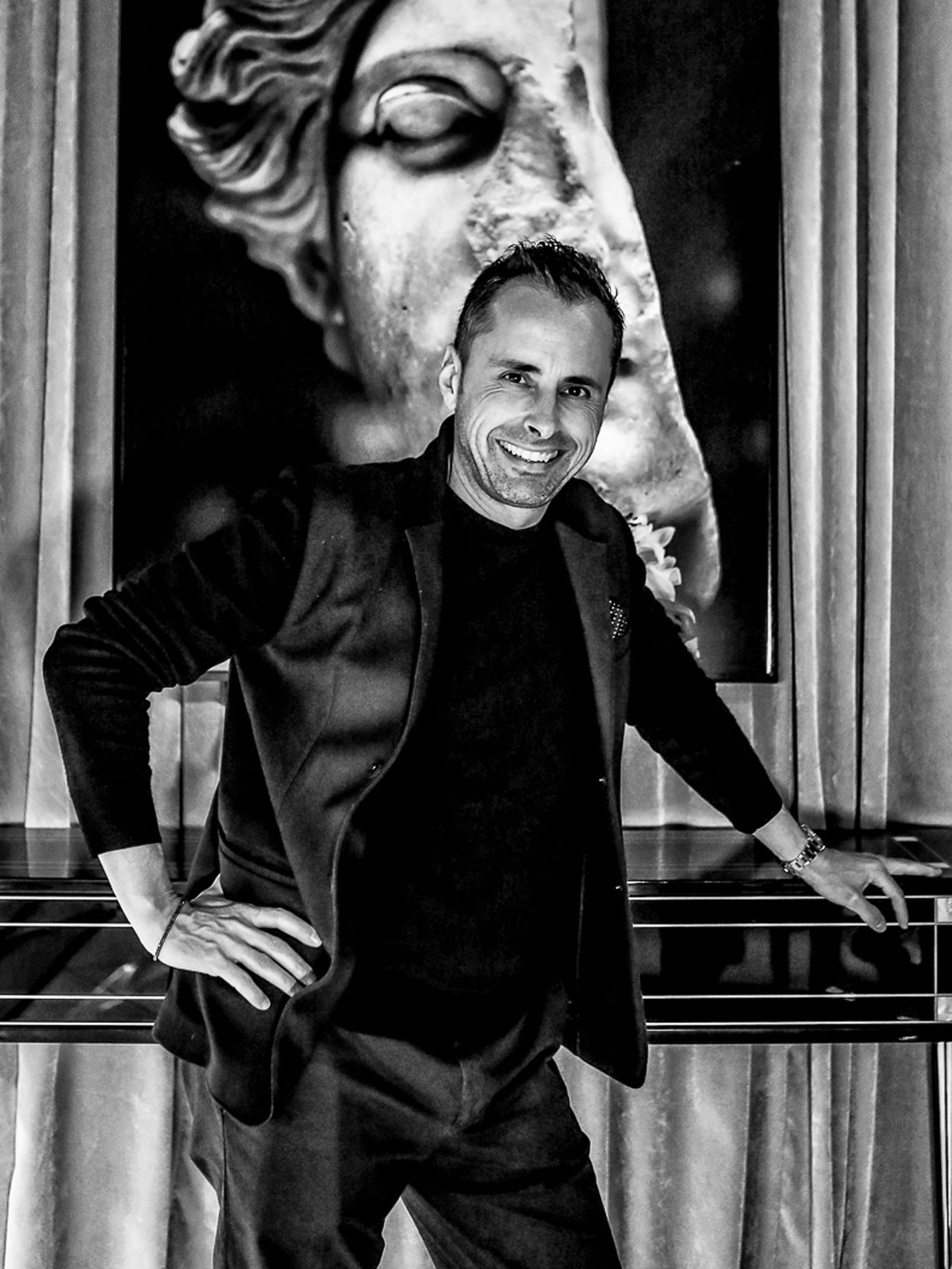
Leopold Cavalli, CEO of Visionnaire
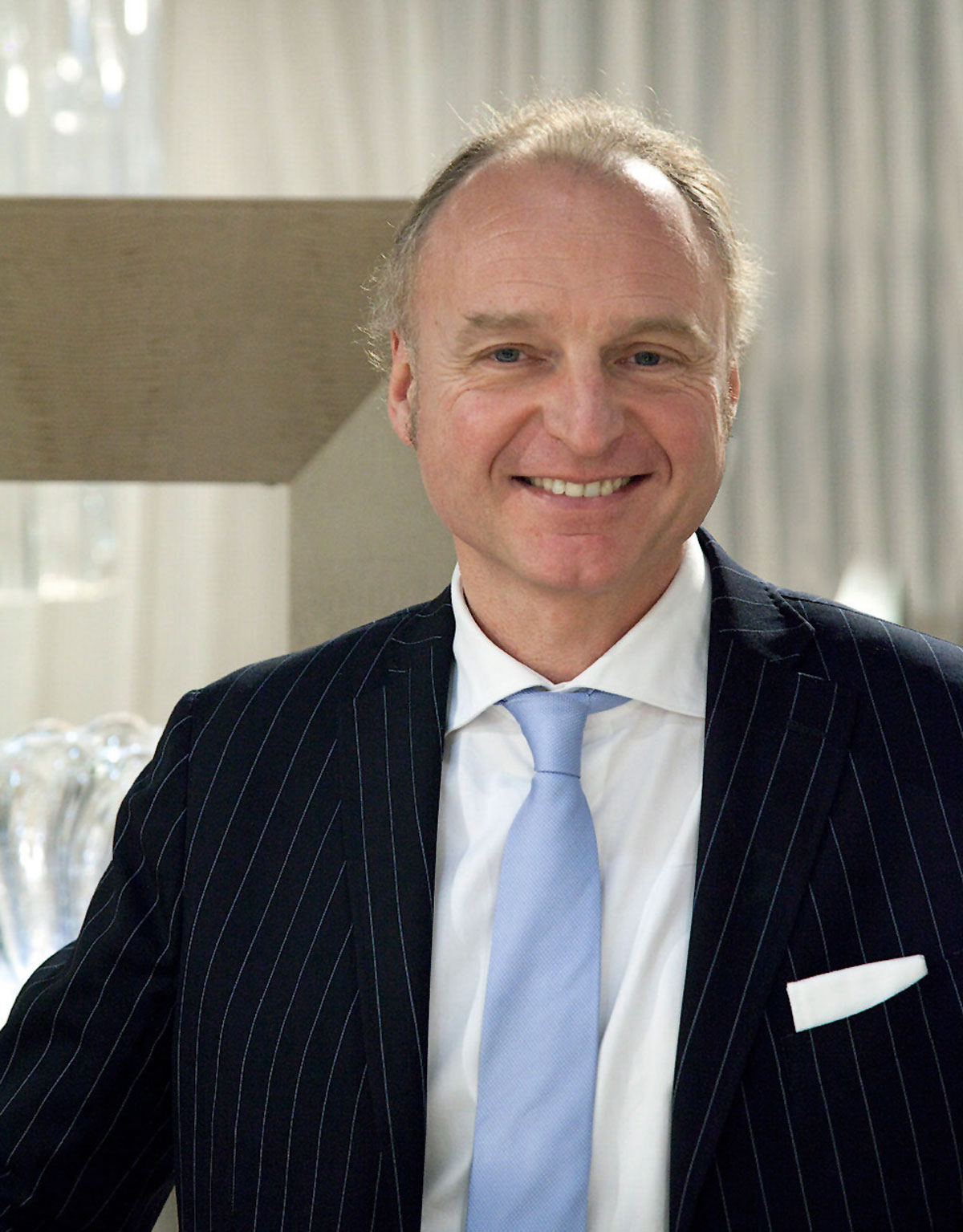
Fabio Masolo, Owner of Giorgio Collection
The companies do indeed have a common cause, Moreno Brambilla, CEO of Jumbo Group says: “We cannot help but agree with the proposals advanced by our colleagues; it is indispensable to resume production, while guaranteeing the health and safety of workers, because our industry is of strategic importance for the Italian economy.”
Giorgio Collection has created an outstanding, perhaps unique case in this sense: “We have never closed – says its President Fabio Masolo. – This has been possible because the ministerial decree of 25 March stated that is was not possible to continue production activities, with the exception of shipping of products already in the warehouse. Our advantage was that we already had over 1000 items in stock, so we have been able to deliver merchandise while working on a narrower range.” Russia, China, Vietnam and Poland are the destinations. “Obviously the entire supply and production chain, and the custom creations, about 30-35%, are being effected by the closure, and this month we have worked at 50% capacity with respect to what we could have gained… but at least we have not stopped. The whole world is not at a standstill, and the constant question is: ‘When can you deliver?’”
Alternative approaches to activity and communication have been put in place by companies to send a signal of continuity, drawing on the digital world and its potential; surprisingly, this is happening precisely in a segment based on traditional styles and elite luxury. “One of the main assets we have built is our digital approach, which I firmly believe in because beauty has to adapt to the world and the times: in an evolving era, digital tools are the only ones that bring people together, during an unpredictable situation like that of the present – says Annalisa Tani, Brand and Product Director of Richard Ginori. – We have launched digital projects like You&Ginori, Ginori in Class and Designers in the Kitchen, to interact with our followers while offering strong content. We will be using digital means to launch new products as soon as that becomes possible, along with special events and the opening of a new showroom inside the Ginori factory: so we will be wagering on a combination of physical and digital.”
Turri is also operating along the same lines: “We are pushing the social channels of the company, with major investments, and this is leading to important results, with the possibility of communicating and advertising, in a moment in which we have had to stop distribution and production,” says the firm’s President Andrea Turri. “I am not confident about a possible early reopening with respect to the date indicated in the decree – he continues – but we were among the last companies to close, and from the outset we have applied all the safety measures (sanitizing of the factory, the use of masks, differentiated entry and exit times), so we are already to resume production, though at a level of no more than 70%.”
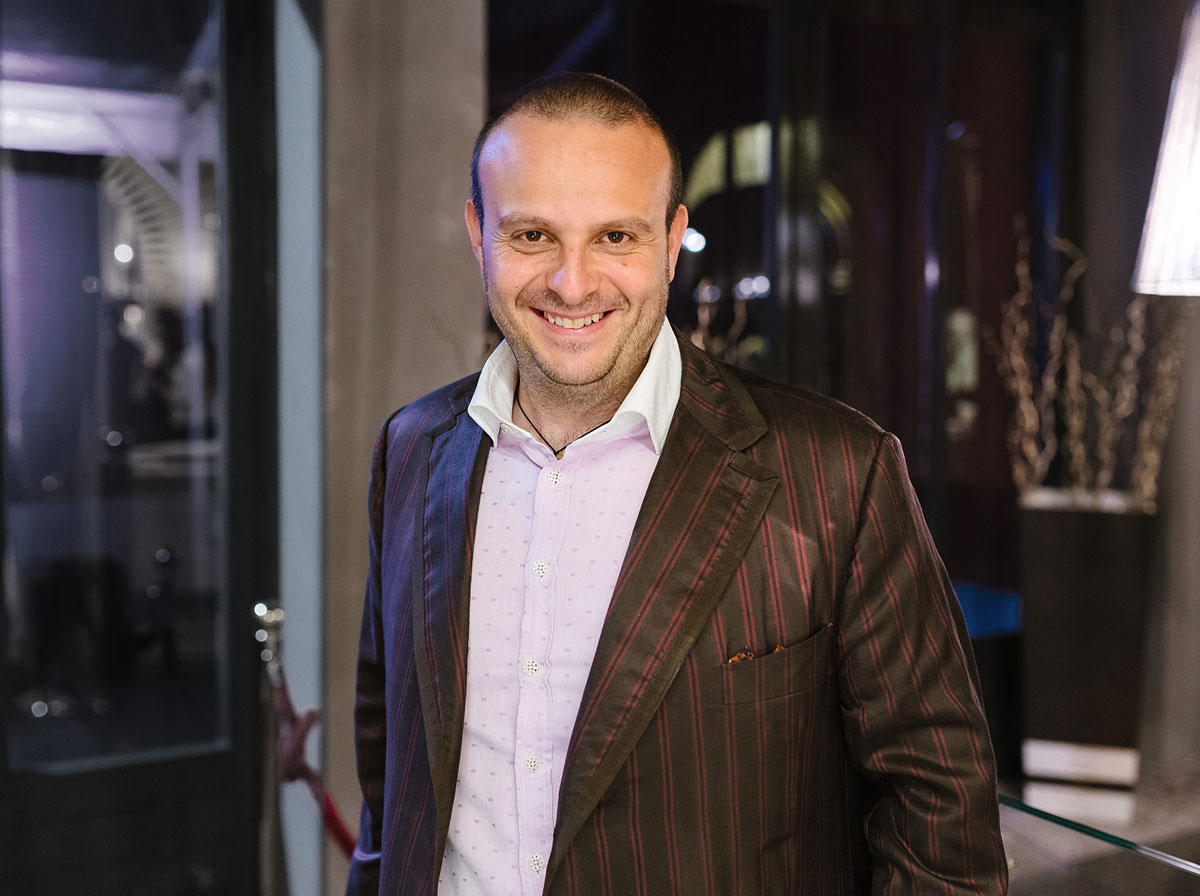
Andrea Turri, President of Turri
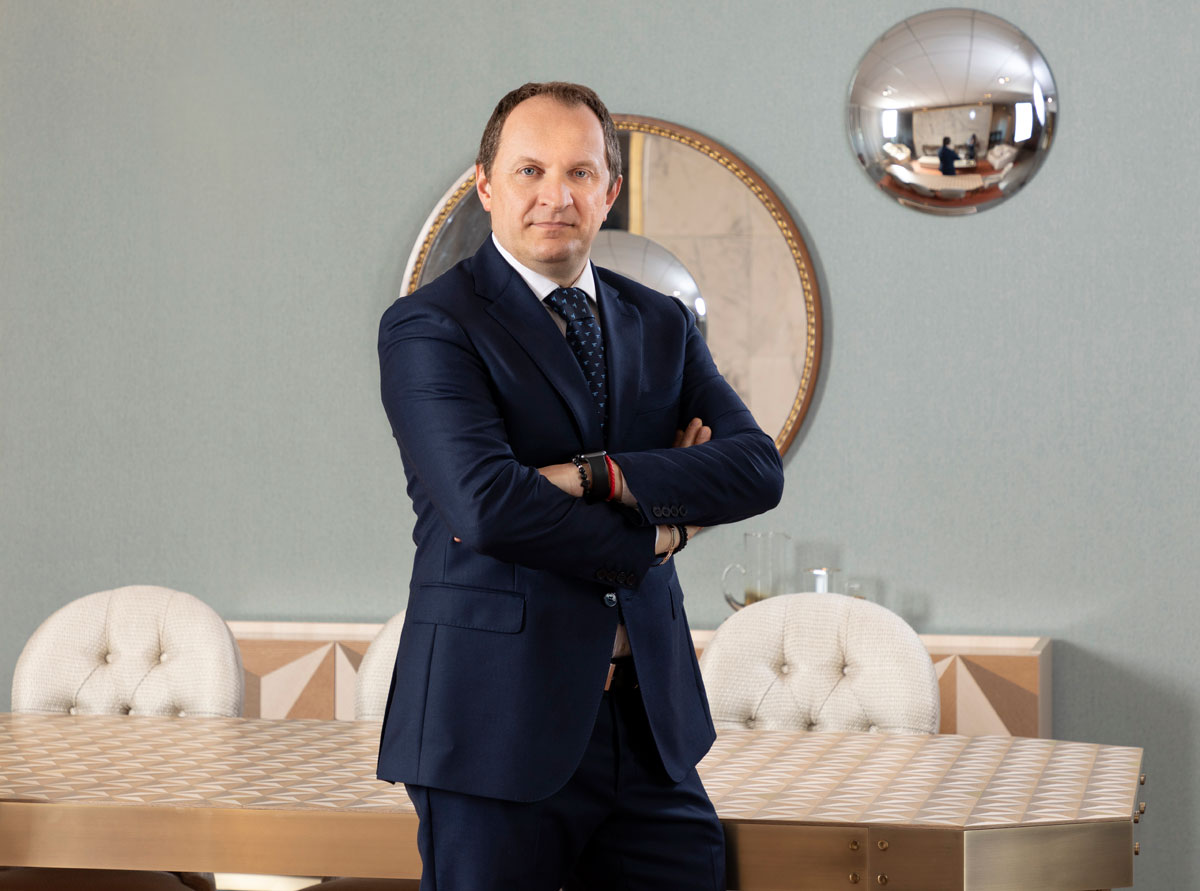
Fabio Merli, General Director of Angelo Cappellini
Fabio Merli, General Director of Angelo Cappellini, is also thinking about reopening. “In this period we are working to organize the resumption, together with the logistics manager and the new production director. It is necessary to set things in motion in order not to send further signs of concern to our clients, who are all over the world. We want to resume quickly, but the problem is to do it in such a way that our entire chain of activity is aligned with our decision.” The company is concentrating on projects for the 10th anniversary of the brand Opera Contemporary, with an eye on activities for 2020: “This year the contemporary brand of the company celebrates its 10th birthday, and next year Angelo Cappellini has its 135th anniversary: there is much to be done, and in spite of the situation our goals have not changed. We will utilize 3D and interactive technologies to narrate the brand’s new developments.”
New products represent one of the main themes of this first half of 2020, due to the cancellation of the Salone del Mobile of Milan, a peerless showcase for the launch and presentation of new collections to an international audience. Unlike the urgent need to resume production, this matter is approached in different ways by the companies.
“We are implementing a plan for the launch of the new collections, which we will begin to unveil in the weeks to come, calling for reinforcement of digital and social communication, events, partnerships and activities for the press, customers and dealers,” says Moreno Brambilla.
“I will be evaluating the idea of presenting the new collection at the Salone del Mobile in Moscow in October – Fabio Masolo remarks – or of doing a preview for our ten top clients in November, to then make a true presentation at the next Salone in Milan in April, where clients will be able to count on immediately delivery of products, since we will have started their production this fall.”
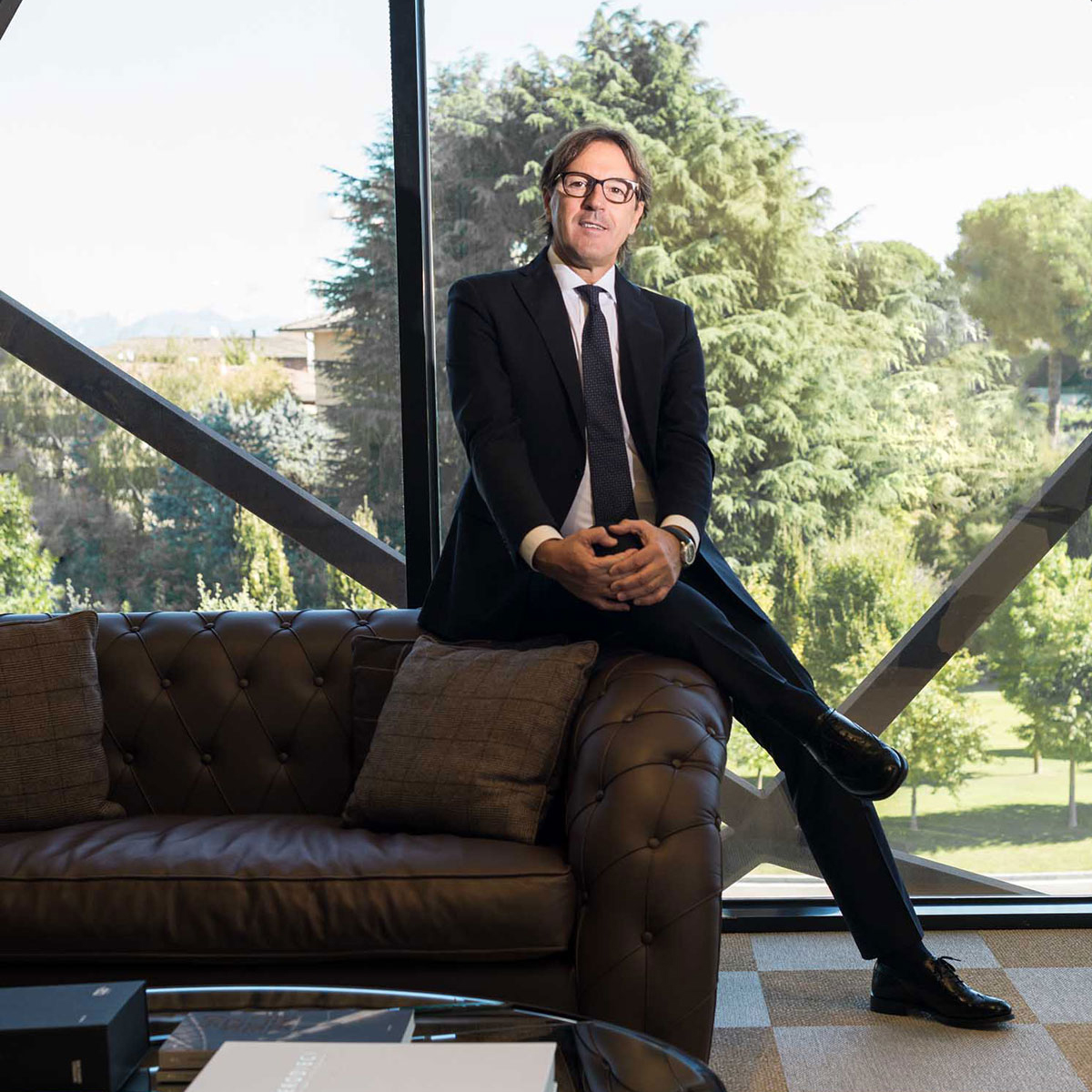
Moreno Brambilla, CEO di Jumbo Group
“We were ready to take part in the Salone del Mobile 2020, and also in September, had that come to pass. It might have been useful to observe the evolution of the health crisis a bit longer, also to find alternative methods of access to participation in the fair, for example with the formula ‘behind closed doors,’ something like what happened in fashion, postponing Pitti to 2 September,” Leopold Cavalli concludes. “Now we have to concentrate on making Milan remain the worldwide capital of design. In the meantime, we are being approached about different FuoriSalone platforms that could be developed in the territory of Milan, with guided visits for groups of clients in total safety; otherwise, the main role will be played by digital formats, using all the new technologies to illustrate the collections being presented in Milanese showrooms.”









